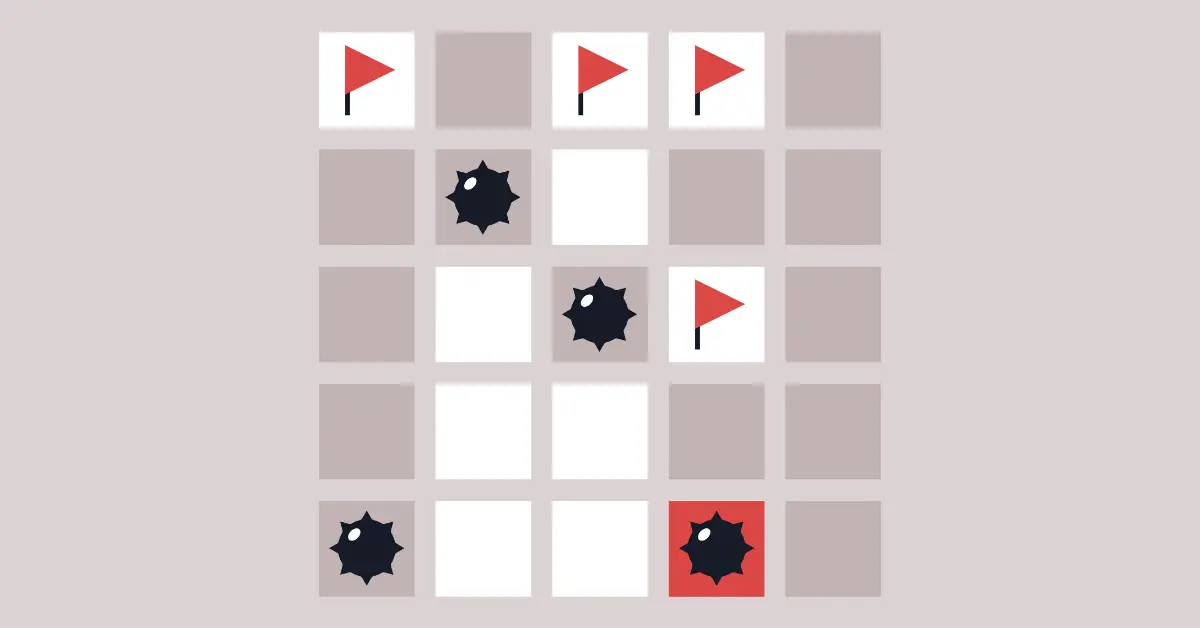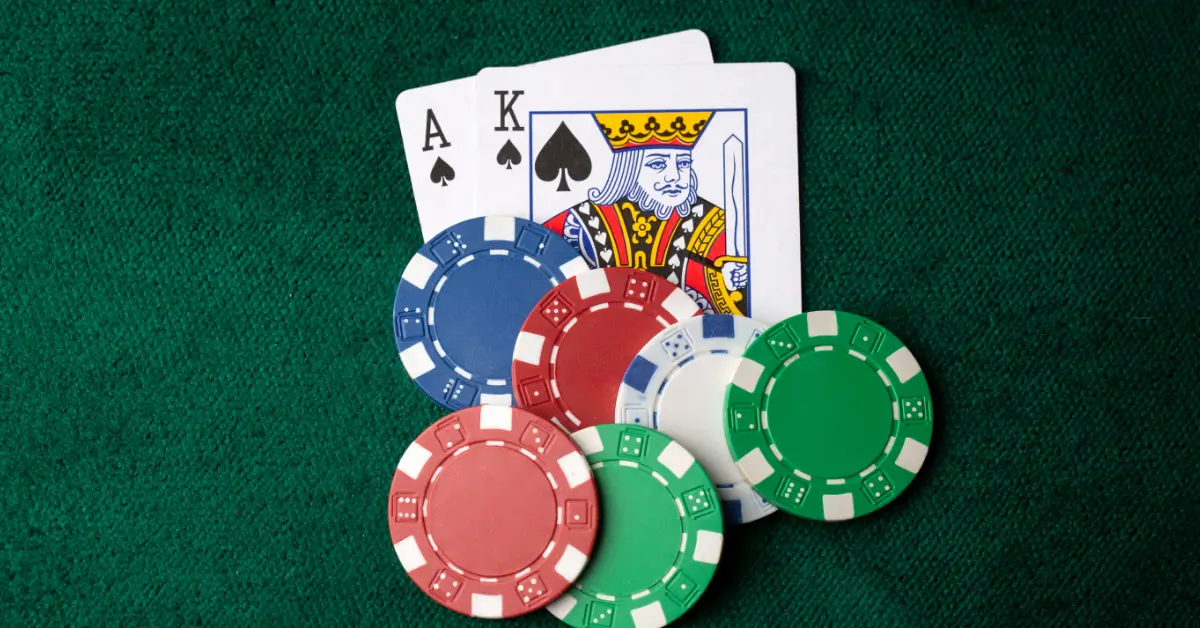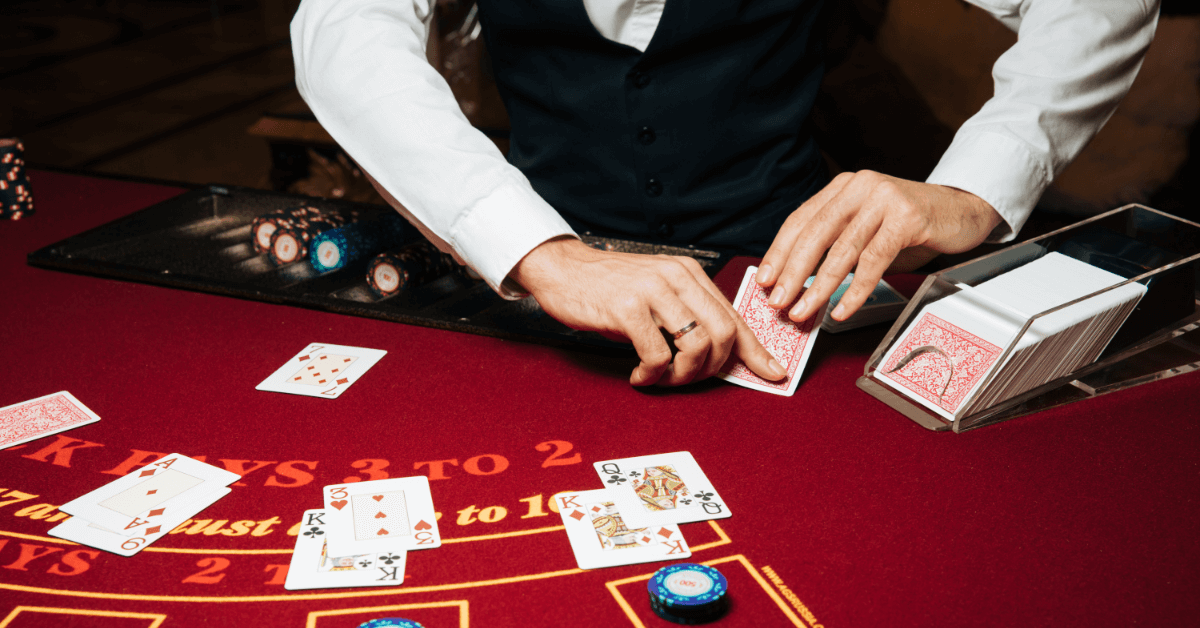Are Casino Games Rigged? Let’s Talk History, Math, and Myths
Wondering if casino games are rigged is a fair concern, especially when you’re on a losing streak and the dealer seems to hit 21 every hand. Cheating was once common, from 1800s shell games to mob-controlled casinos, but today’s regulated industry plays by very different rules.
If you’re playing in a licensed venue, odds are the math is beating you, not the house cheating you.
I’m Heather Ferris, and I’ve spent over two decades in the casino industry training dealers, managing games, and teaching casino operations at UNLV. I know what a fair game looks like and I understand why you may think the system is rigged.
We’ll explore where those suspicions come from, break down the myths and the math, and show you how to spot legit casinos from shady ones. Stick around, because the long answer involves hidden needles, mob money, and why your losing streak says more about probability than conspiracy.
A Brief History of Casino Scams — From Rigged to Regulated
Before modern regulations, casinos weren’t exactly known for their fairness. In fact, early gambling venues often relied on shady tricks and rigged games to keep the money flowing in their favor. Here’s a look at how things started and how they eventually changed.
The Rigged Days of Early Gambling
The first actual casino, that is similar to what we have today, appeared in 1638, when the Great Council opened the first state-sanctioned Ridotti. While today’s casinos are heavily regulated, back then it wasn’t uncommon for shady operators to tilt the odds even further in their favor.
Rigged casino games earned their shady reputation thanks to the wolf-traps of 1840s New York. While most gambling houses played fair, shady hole-in-the-wall joints would rig their games, using gaffed decks or wonky roulette wheels, whenever a wealthy sucker strolled in.
These second-class casinos weren’t legitimate gambling halls so much as elaborate fronts for con games. Here’s how they operated:
- The operation typically began with a “roper” or “steerer” who’d find an easy mark, cozying up to them over drinks, and invite them to visit their “club.”
- Inside, the place would be packed with accomplices posing as successful bankers, lawyers, or businessmen, all conveniently winning big.
- As the mark played, they’d hear tales of a dealer with legendarily bad luck and players walking away with thousands, until, of course, the target lost everything.
- Whatever money was squeezed out of the victim got split between the shills, the roper, and the club owner. The scam was so lucrative that even organized crime, the mob, got into the business.
The Road to Regulation in Nevada and Las Vegas
On March 19, 1931, Nevada passed a law legalizing gambling at licensed establishments, but it came with a catch.
This law banned all “thieving games,” which referred to any casino game that used marked cards or other cheating devices.
Formerly illegal casinos were now operating as legitimate businesses, and in return, the honesty and integrity of their games had to be taken seriously. But the old habits were hard to shake.
In 1949, the mob, unable to get traditional loans and desperate for cash, turned to a group of Cleveland gamblers to bankroll their Vegas dreams.
These guys had made their fortunes running underground casinos back East, and in exchange for a million-dollar investment, they were hoping Vegas could offer them something they’d never had before: respectability.
Sure, it didn’t make them saints, but it did set them on a strange path toward legitimacy.
Mob-owned casinos operated until 1961, when President Kennedy’s national anti-gambling campaign forced mobsters to relocate to Las Vegas. Along with them came managers and dealers who had learned their craft in underground casinos, heading west to continue their trade.
Ironically, Kennedy’s crackdown ended up doing more to help Las Vegas than anyone expected.
Figures like John Scarne, once a master of sleight-of-hand, offered their expertise to the Nevada Gaming Control Board. Scarne trained casino staff to spot trickery and sleight-of-hand, teaching them how to detect marked cards and gaffed dice.
For a deeper dive into gambling’s wild history, check out David Schwartz’s book Roll the Bones.
My Experience at Vegas Casinos
I worked as a casino dealer in Las Vegas during the early 2000s, and in all that time, I never saw or suspected that a casino game was rigged.
One of my managers put it best: “Why on earth would a casino rig a game when there’s already a built-in house edge?” That house edge ensures consistent profits over time, making dishonesty both unnecessary and counterproductive.
As he explained, “The casino makes more money operating legally and transparently than it ever could by cheating. Rigging games risks everything, losing their gaming license, facing steep fines, and forfeiting the right to operate.”
Cheating a player for a few hundred dollars simply isn’t worth jeopardizing a multimillion-dollar business. In this industry, long-term credibility and the ability to stay in operation mean more to them than scamming players for peanuts.
Reasons Why a Casino Game May Feel Rigged
Yes, casinos can feel rigged to players, but that perception usually comes down to two things: the house edge and human misunderstanding of randomness.
The House Edge
The house edge is the built-in advantage the casino has over the player, and it exists in every game. It’s not a scam. It’s how casinos stay in business. The house edge is expressed as a percentage and varies from game to game.
For example, in roulette, the house edge is typically 5.26%. That means for every $100 bet, the casino expects to earn $5.26 on average. If a player bets $100 per spin and plays 60 spins in an hour, they’ll wager a total of $6,000, and with a 5.26% house edge, they’re statistically expected to lose about $315.
It’s not because the game is rigged, it’s just how the math works over time.
Losing Streaks
People tend to see patterns where none exist, especially when they’re on a losing streak. This illusion of patterns, combined with our natural tendency to search for meaning in chaos, leads many players to believe the game is out to get them.
In reality, randomness doesn’t behave the way we want it to.
It’s entirely possible to lose five or ten hands in a row, even when playing smart bets with a low house edge. It’s the same principle you’d observe if you flipped a coin 100 times, you’d see streaks of heads and streaks of tails, even though each flip is completely random.
Most players don’t realize this, and when they can’t explain the losses, they assume the worst: the game must be rigged. But the truth is much simpler, it’s just math and probability doing what they do best.
Still, even when the math checks out, it doesn’t feel that way when you’re losing. That’s where psychology comes into play: if you constantly focus on your bad luck, you’re more likely to notice it, reinforcing a negative mindset.
Tip: Don’t fall for the gambler’s fallacy. Just because you’ve had ten losses in a row doesn’t mean a win is “due.” Each bet is an independent event, past outcomes DO NOT affect future ones in gambling.
How to Spot a Legit Casino
Knowing whether you’re playing in a legitimate casino, whether online or in person, is essential for protecting your money, your data, and your peace of mind. Here are some things to look for:
- Look for proper licensing from reputable authorities such as the Malta Gaming Authority (MGA), United Kingdom Gambling Commission (UKGC), Gibraltar Regulatory Authority, Curaçao eGaming, or — if applicable — your state’s own regulatory body. These agencies enforce strict standards for fairness and player protection.
- When playing at an online casinos, check the footer or “About” section of the casino’s website for licensing info.
- Avoid illegal casinos (like unlicensed operations), which aren’t held to any standard and are more likely to run rigged games.
- Look for: SSL encryption (padlock symbol or “https://” in the URL), clear licensing information, and third-party RNG certification, which ensures fairness in results
- Reputable sites are often audited by: eCOGRA and iTech Labs. These firms test platforms for fairness and transparency.
Red Flags to Watch Out For
Here are warning signs that may indicate a shady or unreliable online casino:
- Massive bonuses with vague or unrealistic terms
- High rollover requirements that are hard to meet
- Expiration dates or withdrawal restrictions buried in fine print
- Slow payouts, especially delays over 48 hours for e-wallets
- Poor or unresponsive customer support — if live chat, phone, or email is unavailable or slow to reply
- Overly promotional reviews or glowing player comments that don’t mention any downsides
Tip: Check expert and player reviews on trusted sources like Trustpilot and Reddit forums. These can give you a balanced view of a site’s reliability, strengths, and weaknesses.
Busting the Biggest Casino Myths
There are two persistent myths surrounding rigged casino games: that roulette wheels use magnets and that blackjack shuffle machines are capable of counting cards.
Magnets in Roulette Wheels
To clarify, the idea of magnets influencing roulette outcomes is not only impractical, it’s virtually impossible.
For magnets to affect the ball’s trajectory, they would need to exert an extremely strong force, to push or pull the ball into a specific pocket. This would be highly noticeable to anyone watching the ball drop.
Plus, anyone who has seen a roulette ball will notice that it is made of plastic and is hollow inside.
Additionally, roulette wheels are routinely inspected by both casino staff and regulatory bodies to ensure fairness and proper functionality.
Shuffle Machines Count Cards
As for the myth that automatic shuffle machines “count cards,” this is simply untrue.
While these machines do technically track cards to ensure a complete deck is present, they do not track patterns or card sequences in the way that human card counters would.
Their purpose is maintenance, not manipulation.
Casino Dealers: Watchdogs, Not Villains
Casino dealers are highly trained professionals whose responsibilities go beyond simply running the game. They’re also the first line of defense against cheaters. Dealers are taught to follow strict procedures with consistency, and this uniformity is crucial.
When every dealer follows the same steps, it becomes much easier for management and surveillance to spot any suspicious behavior. Anything that deviates from the standard procedure, whether it’s a dealer acting oddly or a player attempting sleight-of-hand, this stands out immediately.
These built-in checks and balances are designed to protect the integrity of the game, which is of the utmost importance to the casino.
Dealers are trained to keep an eye out not just for player scams like past posting or pinching, but also for hustlers, pickpockets, or anyone that may cause harm to the guests.
What Happens When Dealers Cheat
When cheating does involve a dealer, it’s almost always part of a coordinated effort with one or more players, designed to steal from the casino, not the players.
Casinos take these incidents very seriously. A dealer who manipulates the game or breaks procedure to assist a player will be swiftly fired, reported, and blacklisted.
In Las Vegas, this means losing their Gaming Control Board license, effectively ending their career in the industry.
The vast majority of dealers don’t cheat players because there’s no benefit in doing so and they have everything to lose.
The casino watches dealers just as closely as it watches players, ensuring the games remain fair and legitimate for everyone involved.
Why Dealers Want You to Win
Contrary to popular belief, dealers actually want players to win.
While movies and myths often paint dealers as agents of the house, rooting for player losses, the truth is far from that.
Dealers earn a base wage of around $8 an hour, which means the majority of their income comes from tips.
And players don’t tip when they’re losing.
Because their livelihood depends on those tips, dealers have every reason to want players to succeed.
Simply put, a winning player is a happy player, and a happy player is more likely to tip.
My Take and Final Thoughts
In the end, while the shady history of rigged games and con artists may make for fascinating storytelling, today’s legitimate casinos are built on regulation, oversight, and mathematical advantage, not manipulation.
The house doesn’t need to cheat because the odds are already in its favor, thanks to the house edge.
Rigged games have no place in licensed, modern casinos, where strict procedures, constant surveillance, and government regulations ensure fair play. But in unlicensed casinos and shady backroom games, all bets are off.
So, the next time you’re on a losing streak, don’t blame the dealer, blame the math. And if you’re still unsure? Do your homework, trust the licensed platforms, and always play smart.



